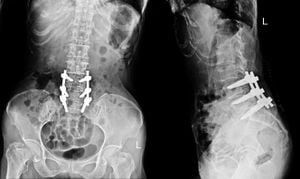A massive national strike organized by various unions brought transportation to a standstill across Belgium on February 13, 2025. Tens of thousands of demonstrators gathered in Brussels, protesting against austerity measures outlined by the new federal government.
From early morning, public transport systems felt the brunt of the unrest, with the Flemish public transport operator, De Lijn, announcing significant service reductions. Data revealed only about half of the normal bus and tram services were operational, with attendance varying by region; for example, only 40% of services were running within Antwerp city limits, and only 32% were active on certain routes within Ghent. Commuters were advised to check real-time updates through route planners as many lines were not serviced at all.
Brussels also faced complete flight stoppages, impacting travelers relying on Brussels Airport and Charleroi Airport. Transportation authorities confirmed, “There will be no flights at Brussels Airport and Charleroi” during the strike periods, effectively stranding potential passengers. Travelers holding tickets for this day were left scrambling for alternate arrangements. Experts suggested affected airlines should provide rescheduling options or reimbursements.
The protest, spearheaded by unions AGVV, ACV, and ACLVB, aimed to voice frustration over projected cuts and the loss of jobs. Leonie Van Gerven of Belga noted, "We expect more than 50,000 people" to participate, indicating the high level of public discontent with the government's austerity plans.
Pushing back against the government's proposed adjustments, teachers and educators expressed unique concerns about pension reforms impacting their future. Koen Pelleriaux from the community education network GO! explained, “We are experiencing discontent due to announced pension adjustments.” He elaborated on how these changes could have long-standing and troubling ramifications for educators, highlighting the uncertainty many felt about their working conditions and future career paths.
Further complicate matters, the strike also affected postal service operations. Bpost reported disruptions particularly within Brussels and Wallonia. A spokesperson mentioned, “We will have to cancel scheduled waste pickups,” illustrating how the action impacted wider city maintenance services.
Chris Reniers, President of the ACOD union culture, stated the demonstrators were primarily concerned about the adverse effects of the proposed reductions. “Public services are being heavily impacted,” he stressed, emphasizing the need for unions to step up during such confrontational periods with the government.
Though participation from teachers appeared to be less than previous strikes, likely due to long-term structural changes rather than immediate actions, Reniers noted, “Instead of cuts, we hoped for investments.” This sentiment echoed the fears of many public service workers feeling vulnerable under budget constraints imposed by the federal government.
Despite the overwhelming majority participating, some groups were noticeably absent from the protest, including the Vlaams Belang party, whose leader suggested alternative solutions to the unions’ proposed demands. He remarked, “Vlamings feel overworked and underappreciated.” Tom Van Grieken explained the perceived societal unfairness of asking high productivity from those already under pressure.
Authorities across Brussels reiterated warnings for commuters planning travel during the strike day, advising against car trips to ease anticipated congestion as protesters staged their demonstration through the city. “There is no reason to travel by car today; public transport system is mostly down,” stated city officials.
Outside of transportation, the strike's effects were widespread—waste collection systems, solid waste disposal, and various community services halted their normal operations. Brussels' cleanliness services took preemptive steps, asking residents not to place waste outdoors until next scheduled pickups to avoid litter piling up on streets. The ripple of discontent from public transport to service access showcased the interconnectedness of community services and demonstrated the deep-seated frustrations of the populace.
Undeniably, February 13, 2025, marked one of the more significant organized protests against government policy, signaling potentially turbulent times for labor relations and public services as unions prepared for future actions. With many unions indicating this day wasn't merely about today’s protest but part of “a marathon of social protest,” the government's reception and response to these calls for change will be imperative moving forward.



